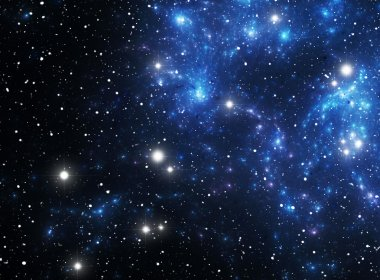
"Asteroids are the key to unlocking the secrets of the origin and evolution of the solar system—Ancient astronomy thrown into the history of time— Science that shows as much as you know— The overwhelming feeling of deciding to become an astronomer— Hot and exciting— A universe full of news— All matter beyond the horizon sucked into its space— Astronomers wanting to spread their passion— Cosmic mega-structures that stimulate the imagination—" Although they are short phrases, they are enough to spark intellectual curiosity. They are quotes from eight young astronomers in "90 Days of the Universe," A Korean book by 8 astronomers on the universe, space, and cosmas which the columnist recently read.
"Scientific tools like the James Webb Space Telescope give astrophysicists the potential for new discoveries. We will be able to see how the universe continues to expand and change before our eyes. Above all, we are amazed by the vastness of the universe and the countless galaxies, stars, and planets that have been identified so far. In both science and philosophy, we can be tempted to get only the results we expect. But may you always be inspired by your love of truth and may you feel the wonder of all things through each piece of the universe."
This is a message that Pope Francis sent to young astronomers last June. They were participants in the Vatican Observatory's summer school, and the Pope's words resonated with the columnist as strongly as the book that excited him. In fact, it's been a couple of months since he posted any content on space-related media. We mainly reprocess foreign news articles, including those from the National Aeronautics and Space Administration (NASA). Since he is unfamiliar with the fields of astronomy and space, he relies on related books, news, and information. It is fun to learn about the vast universe that reveals itself and beckons.
How should we understand creation and evolution, theology and science, religion, and the universe? As he brings up the story of space, questions like these keep coming. First, it was clearly summarized by Pope Pius XII 73 years ago. "The Magisterium of the Church does not prohibit the study and discussion of human experience in the two fields of human science and sacred theology related to the theory of evolution." (See Encyclical Humanity, paragraph 36). Then, in 1996, Pope St. John Paul II stated: "Darwin’s theory of evolution does not contradict Catholic doctrine."
Science and faith are at odds over the 13.8 billion-year history of the origin of the universe. However, the church did not only insist on creationism but also accepted the theory of evolution, which reflected the achievements of science. It cannot be anything other than meaningful harmony. Several passages in the Bible mention celestial bodies. The psalmist praised it like this about 2,000 years ago. "I look up to your sky. The moon and the stars, which you have established firmly, the works of your fingers." (8:4-5) The prophet Isaiah also agrees. "Lift up your eyes and see. Who created the stars?" (40,26)
In short, faith is an area that cannot be revealed through experiments and proof, which are the frame of reference of science. Believers believe that the mystery of this world and the universe is God's creation. Science clearly has limitations and cannot be made absolute. The mission of scientists is to conduct research for a ‘better life’ for humanity. Wouldn’t the goal of faith and science be the pursuit of human happiness? Therefore, the two are not separate from each other but must move forward harmoniously like two wheels of a cart.
Another eventful year is drawing to a close. We who are busy and buried in our daily lives, let's lift our eyes for a moment and look at the sky. How beautiful are the bright stars in the night sky? What about the brilliant space show of the Aurora that decorates the North Pole? As astronomer Carl Sagan said, the Earth seen from space is nothing more than a ‘pale blue dot'. As people living on Earth, we must break away from being ‘frogs in a well’ and open our eyes to a wider world. Let us end extreme competition and war, save the earth, and be filled with love for God and our neighbors. In the coming new year, it is time to look at the universe and move forward with new hope.
No comments:
Post a Comment